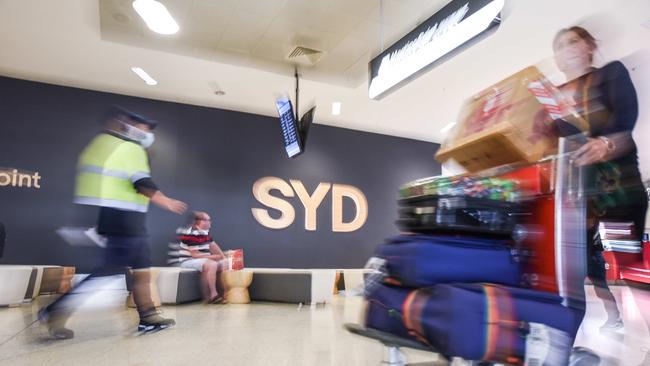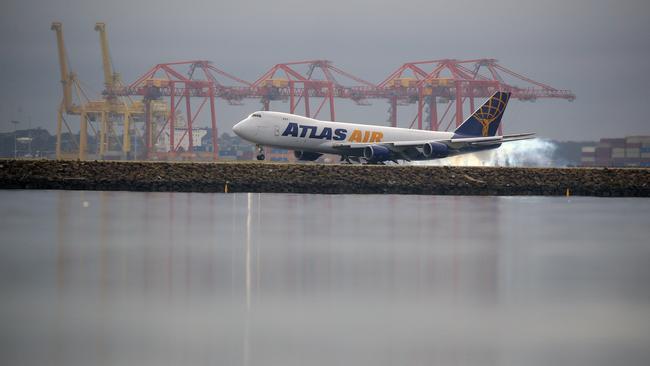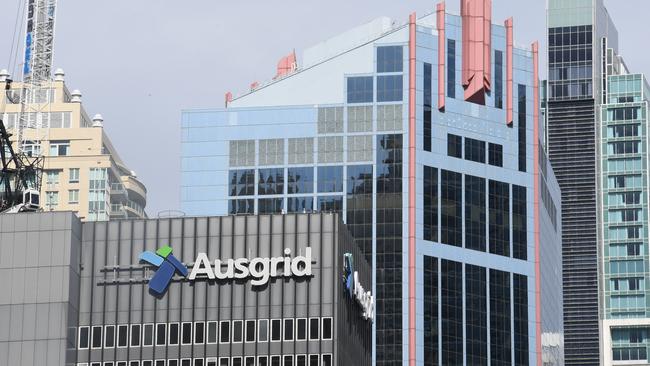
The ACCC decision is a major step forward for the IFM-backed consortium bidding for Australia’s largest airport — a deal which could now be wrapped up early next year.
Led by the by the $150bn industry superannuation fund investment vehicle IFM Investors, the bidders, operating under the name of Sydney Aviation Alliance, include Australian Super, QSuper and New York based infrastructure fund manager, Global Infrastructure Partners, (GIP).
Industry fund UniSuper, which currently owns 15 per cent of Sydney Airport, will remain as a shareholder.
Australia’s largest superannuation fund, Australian Super, which now has more than $250bn in assets, is also expected to emerge as a significant shareholder after the deal is finalised, possibly with up to 15 per cent.
The ACCC investigation into the bid for Sydney airport was prompted by the network of cross ownerships by the industry funds in the sector.
Consortium leader IFM, which is owned by 23 industry super funds, has holdings in nine airports in Australia: Melbourne (25.2 per cent), Brisbane (20 per cent), Adelaide (12.8 per cent), Darwin (77.4 per cent), Perth (3.2 per cent), Alice Springs and Tennant Creek (77.4 per cent), Launceston (22.7 per cent) and Parafield in South Australia (12.8 per cent).
Australian Super has a 5.25 per cent stake in Perth Airport and QSuper has investments in airports in Brisbane, Heathrow and Edinburgh.
(The US based GIP has investments in airports in Gatwick, Edinburgh and London City airports.)

While it was unlikely that the ACCC was going to put up any major roadblock to the deal, the announcement gave it a clear green light with no conditions.
Qantas chief Alan Joyce, who is keenly aware of the network of investments in Australian airports by industry funds, has been arguing for an arbitration system to limit what he fears could be abuses of market power by airports.
But Rod Sims was very clear that he believed that not only were there no grounds to block or put conditions on the deal, but that big Australian airports such as Sydney are natural but separate monopolies.
While they have significant pricing power in their own markets, he doesn’t see they have the capacity for collusion between each other – or at least in a way which could substantially lessen competition as result of the new ownership of Sydney airport.
A delighted Sydney Aviation Alliance spokesperson welcomed the decision and said it looked forward to the next big step which will be the vote on the deal, by security holders which is expected to happen in early February.
Technically the deal still has to pass muster with the Foreign Investment Review Board – given the involvement of the US based GIP – but this is not expected to present a significant hurdle.
Once the Sydney Airport board decided to back the upgraded bid in early November, the ACCC review was considered the biggest potential hurdle.
That said, Sims has reiterated his concern over the long term for a better regulatory regime for “constraining Sydney Airport from charging excessive prices.”
“The ACCC maintains the view that the threat of regulation under the current limiting monitoring regime, does not constrain the pricing behaviour of our airports,” he said.
“The absence of constraint ultimately leads to consumers paying higher airport passenger charges than they otherwise would.
“We will continue to advocate for a regulatory regime that is effective, particularly as the aviation industry and the Australian economy recover from the Covid-19 pandemic.”
But the airport’s potential new owners, industry super funds with deep pockets, are not fazed by that, eager to get their hands on a trophy asset which can generate returns over the long term which suits their investment needs in a country where new major infrastructure investment opportunities are limited.
At the same time, Australian Super, which has some $17bn invested in Australian infrastructure, is freeing up capital by selling down its interest in NSW electricity distributor Ausgrid.

Australian Super teamed up with IFM to buy a 50 per cent stake in Ausgrid from the NSW government in 2016.
On Thursday it announced it had sold a 16.8 per cent stake in Ausgrid to APG, the largest pension provider in the Netherlands.
This leaves AustralianSuper with an 8.4 per cent direct stake in Ausgrid as well as an indirect stake through its own investment in IFM.
The sale, which it said was part of a “rebalancing” of its $25bn global infrastructure portfolio, could see AustralianSuper lock in a profit from its Ausgrid investment and free up a few billion for investment in other deals including Sydney Airport.
AustralianSuper and IFM paid $16bn in 2016 to buy their 50 per cent stake in Ausgrid, with $12bn going to the NSW for debt and another $4bn for equity.
Using a buy in price of $4bn for the equity, it would value 16.8 per cent stake at $1.3bn in 2016 — with this week’s $2.2bn price tag producing a paper profit of $900m.
The giant fund has invested more than $5bn over the past year in infrastructure assets in Australia and around the world, including Sydney’s WestConnex and the Australia Towers Network from Optus in Australia, Transurban Chesapeake in the US and Peel Ports in the UK.
The deals highlight the alliances now forming between the industry funds as major institutional players.
IFM and Australian Super have teamed up for several deals including Ausgrid, NSW Ports and now Sydney Airport — easily able to muster a powerful cheque book between them.
AustralianSuper has also teamed up with APG for its investments in WestConnex and Peel Ports.
The deals also make IFM’s Northern Ireland born head of Australian infrastructure, Michael Hanna, and Australian Super’s head of infrastructure, Nik Kemp, increasingly important players on the Australian investment scene.
Major investment banks now have the key players on the investment side of industry super funds on speed dial for potential deals.
When it comes to industry super funds and mega deals, it’s a perpetual case of “watch this space”.







It was another big day in the life of the $900bn industry super fund sector on Thursday with Rod Sims’ Australian Competition and Consumer Commission, giving the green light for a $24bn bid for Sydney Airport while Australian Super raised a cool $2.2bn selling off a stake in NSW electricity distributor Ausgrid.